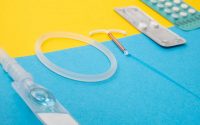NAP lowers blood pressure, such as low-dose blood pressure medication
NAP for high blood pressure?
A little NAP around lunch time not only leads to an improvement in mood and new energy, according to a recent study, with a noticeable drop in blood pressure. Researchers at the compared to be held at the end of reduction in blood pressure with the effects of low-dose blood pressure-lowering drugs.
The scientists from the asclepeion General Hospital discovered in their recent study, that a short NAP can be achieved by effecting, in the course of the day, the same advantages in lowering the blood pressure, such as by low-dose blood pressure-lowering drugs. The doctors published the results of their study at the age of 68. Annual Scientific Session of the American College of Cardiology.

Lunch sleep as effectively as drugs?
Lunch sleep seems to lower blood pressure in the same order of magnitude as other lifestyle changes, experts say. For example, the reduction in the intake of salt and alcohol can lower blood pressure by three to five mmHg, says study author Manolis Kallistratos from the asclepeion General Hospital, Voula, Greece. For comparison: Low-dose blood pressure-lowering drugs reduce average blood pressure by five to seven mmHg.
How strong a NAP reduces the blood pressure?
Overall, a NAP during the day was associated with an average drop in blood pressure of five mmHg, in the opinion of the researchers with the comparable to what is expected from other well-known blood pressure-lowering measures. In addition, the systolic blood pressure fell, on average, per 60 minutes of midday sleep to three mmHg. “These results are important because a drop in blood pressure of up to two mmHg reduce the risk for cardiovascular events like a heart attack by up to ten percent kann“, explained Kallistratos in a press release from the American College of Cardiology.
The findings of the study, the following can be someone who makes a daytime NAP to achieve advantages in the reduction of high blood pressure. This is the first study to prospectively estimate the influence of the noon sleep on the blood pressure of people whose blood is controlled appropriately, according to the research team. Previously, the Team found that Siesta was associated with a lower blood pressure and the use of less antihypertensive medications in patients with very high blood pressure value.
212 subjects were examined for the study
“The higher the blood pressure, the more pronounced the effort to reduce blood pressure. Through the involvement of people with relatively well controlled blood pressure, we can be secure that there are significant differences in the levels of blood pressure is probably on the NAP are due, “ explains Kallistratos. For the study, 212 subjects were studied with a mean blood pressure of 129,9 mmHg. On average, these Participants were at the age of 62 years, and slightly more than half was female. About one out of four subjects was a smoker, and / or suffered from type 2 Diabetes. The physician assessed and recorded during their study for 24 hours continuously the blood pressure, the midday sleep of the time (the average duration of 49 minutes), living habits (e.g., alcohol, coffee and salt consumption, physical activity) and the so-called pulse wave velocity, a measure of the stiffness in the arteries. The Participants wore the device an ambulatory blood pressure monitor to measure blood pressure during daily life at regular intervals and to monitor. In addition, an ultrasound of the heart was carried out during the study, an echocardiogram,. (as)


